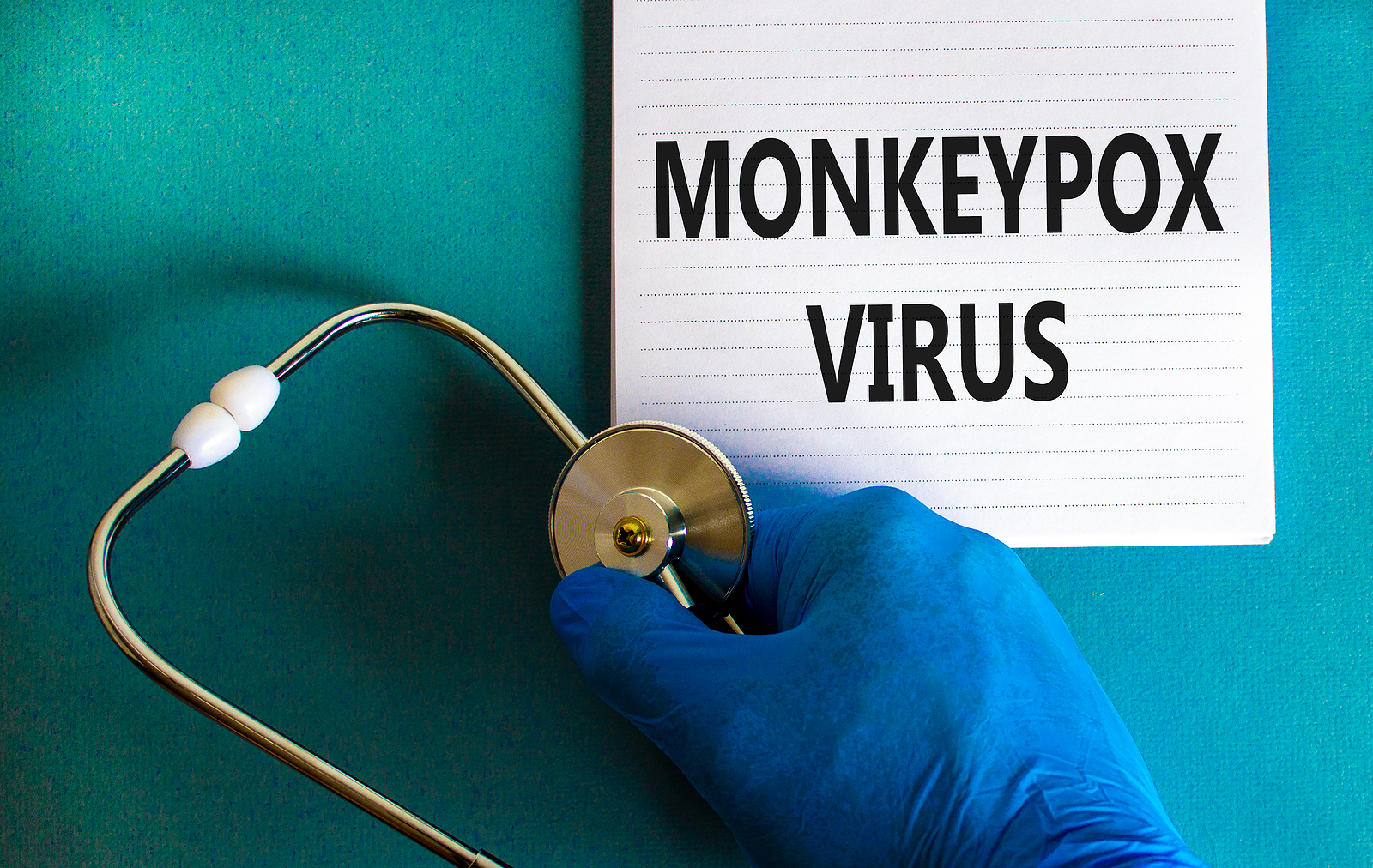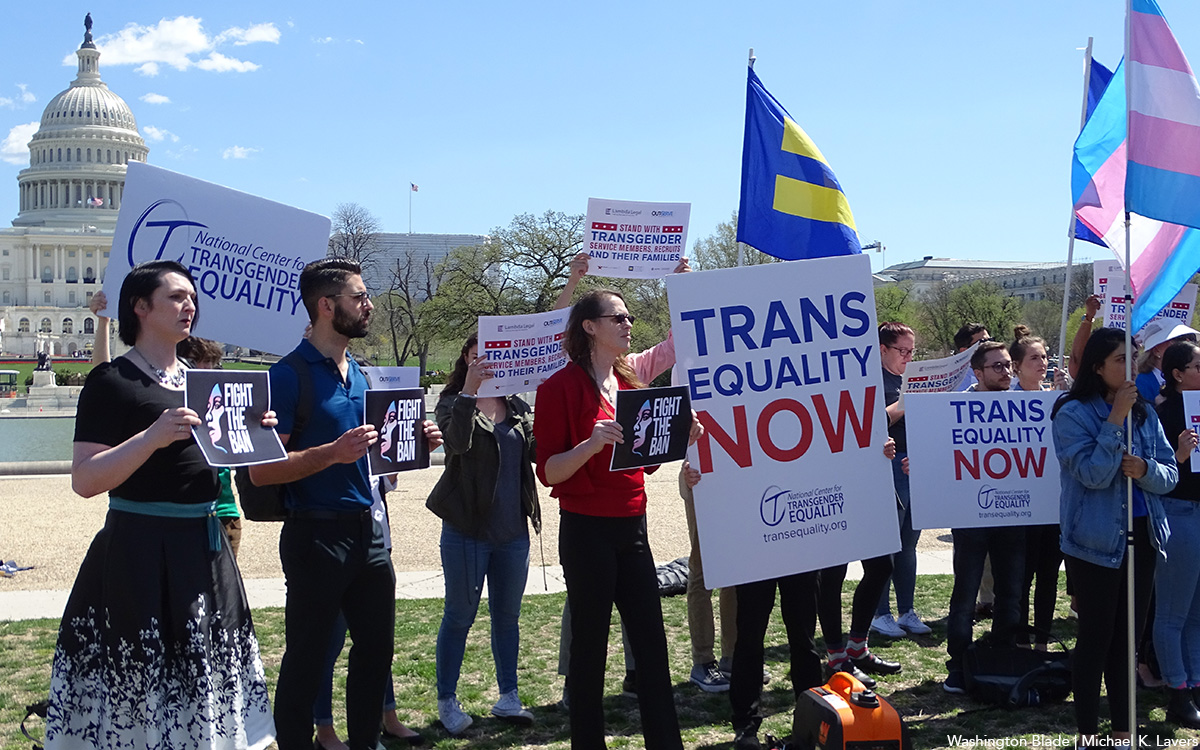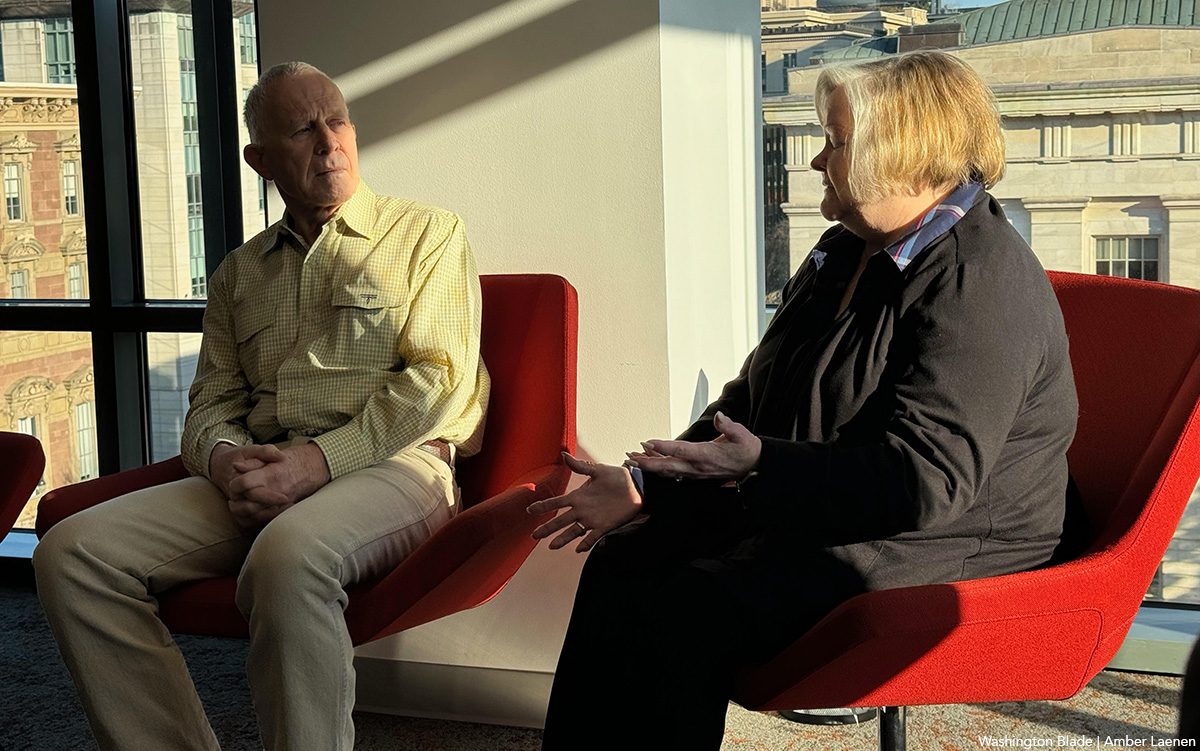District of Columbia
Monkeypox cases in D.C. rise, vaccination clinics open
Nation’s capital has emerged as hotspot for viral illness

The Centers for Disease Control and Prevention on Tuesday said 53 cases of monkeypox have been reported in D.C.
Vaccination is the primary treatment for the viral illness; which is spread through close, skin-to-skin contact with monkeypox lesions. Virginia is currently reporting 13 monkeypox cases, and Maryland is reporting nine, but D.C. is the regional hotspot. To address the uptick in cases, the D.C. Department of Health has opened two new vaccination sites in Northwest Washington, which are available via appointment only.
The vaccination appointments have been filling up within minutes, and some frustrated D.C. residents have criticized the registration system on the organization’s Twitter page, complaining about the limited slots and lessons not-learned from the push for COVID-19 vaccinations.
Mayor Muriel Bowser has previously urged gay and bisexual men and transgender women to get vaccinated, and the majority of local cases are concentrated among men who have sex with men.
While most monkeypox cases are not life-threatening; with symptoms such as rash, fever and headache, last week’s statement from Bowser and the D.C. Department of Health said that “although the majority of cases do not require hospitalization, monkeypox is dangerous, highly contagious, and uncomfortable.”
In New York City, another monkeypox hotspot, cases have doubled over the past week, rising to 111 cases in the five boroughs.
The U.S. Department of Health and Human Services on July 1 announced that it has ordered 2.5 million additional doses of the monkeypox vaccine, and more vaccination appointments are expected to become available as vaccine supply increases.
District of Columbia
D.C. events to commemorate International Transgender Day of Visibility
Monica Beverly-Hillz to attend Blossom Gala at Hook Hall

Trans USA National Pageantry and the National Center for Transgender Equality will hold a series of events in D.C. on Sunday in commemoration of the International Transgender Day of Visibility.
The TRANSform the Vote rally will take place on the National Mall.
Organized by the Queer Equity Institute and NCTE, the event aims to celebrate trans liberation, combat violence and promote civic engagement. Elected officials, activists and artists are expected to participate.
Queer Equity Institute Executive Director Leigh Finke and NCTE Executive Director Rodrigo Heng-Lehtinen discussed the rally and how it will empower the trans community and promote advocacy.
“From restricting access to medically necessary healthcare to denying trans students the opportunity to participate in sports, we have seen nationwide efforts to exclude trans people from society,” said Heng-Lehtinen. “TRANSform the Vote presents a historical moment for us to empower our community — casting our votes and participating in democracy is just one of many ways our community can advocate for the issues that matter to us.”
Finke, Minnesota’s first openly trans lawmaker who wrote the state’s groundbreaking trans refuge bill, echoed Heng-Lehtinen.
“Over the past few years, we’ve watched again and again as ‘jokes’ became hate speech, hate speech became bills, bills became laws; and all the jokes, hate speech and laws created an environment where transgender people are assaulted, beaten and murdered,” said Finke. “Some of the most important tools we have to fight back against these attacks is to change the culture through voting, running for office and creating art and music that shift society. This rally is meant to highlight and encourage folks to use those tools in their communities.”
Confirmed speakers and participants aside from Finke and Heng-Lehtinen include:
- Minnesota state Rep. Alicia “Liish” Kozlowski, who is one of the country’s foremost activists for Indigenous trans and two-spirit people.
- Minneapolis City Council President Andrea Jenkins.
- Angelica Ross, a Buddhist artist and human rights activist.
- Visual artist Cassils
The first annual Blossom Gala will take place at Hook Hall (3400 Georgia Ave., N.W.) and will feature keynote speakers, a Q&A panel discussion featuring national leaders in the trans rights movement and drag performances. Cherry Bomb, which will cap off the event, is an all-trans drag showcase.
Mr. Trans USA 2020 Eddie Broadway; Miss Trans USA 2020 Bianca Nicole and Candi Stratton, a world-renowned Cher illusionist, are among those who are expected to perform. Other participants will include Miss Trans USA 2023 Anya Marino, Mr. Trans USA 2023 Trey C. Michaels and NCTE National Organizer Sybastian Smith.
Monica Beverly-Hillz from “RuPaul’s Drag Race” will also participate.
District of Columbia
Judy and Dennis Shepard discuss Nex Benedict, anti-LGBTQ laws at DC event
Nonbinary Okla. high school student died last month after fight

Judy and Dennis Shepard on Thursday reflected on Nex Benedict’s death and the proliferation of anti-LGBTQ laws across the country during a discussion the Raben Group hosted at their D.C. office.
The discussion, which MSNBC host Jonathan Capehart moderated, took place less than a month after Benedict died.
Benedict, who was nonbinary, passed away on Feb. 8 after students at their high school in Owasso, Okla., assaulted them in a bathroom.
Vice President Kamala Harris, White House Press Secretary Karine Jean-Pierre, House Speaker Emerita Nancy Pelosi (D-Calif.) and Republican Oklahoma Gov. Kevin Stitt are among those who have publicly responded to Benedict’s death, which took place after they endured months of bullying. More than 300 advocacy groups have demanded Oklahoma Superintendent of Public Instruction Ryan Walters’ removal and called for a federal investigation into the Oklahoma Department of Education’s “actions and policies” that have facilitated a “culture where rampant harassment of 2SLGBTQI+ students has been allowed to go unchecked.”
“Parents are doing whatever they can to protect and encourage and support kids, and you have these what I call evil, evil people around the country pushing these laws,” said Dennis Shepard.
He noted lawmakers around the country are pushing anti-LGBTQ laws and other efforts that include the elimination of diversity, equity and inclusion programs. Dennis Shepard also highlighted an effort to defund gender studies programs at the University of Wyoming.
“[It is] the old white male, Christian geezers who want to go back to the days of the 50s when they had that superior arrogant attitude,” he said. “They’re losing it and they don’t want to, so they’re passing everything they can.”
“What happened to Nex is a result of that,” added Dennis Shepard. “They feel like Henderson and McKinney felt when they took Matt out on the prairie.”
Matthew Shepard died on Oct. 12, 1998, after Russell Henderson and Aaron McKinney brutally beat him and left him tied to a fence in Laramie, Wyo. Then-President Barack Obama in 2009 signed the Matthew Shepard and James Byrd Jr. Hate Crimes Prevention Act, which added sexual orientation and gender identity to the federal hate crimes law.
“If you’re considered different, you’re in fear of your life right now because you don’t fit in and it’s got to stop,” said Dennis Shepard.
Judy Shepard echoed her husband, noting this moment is “the last gasp of the fight against the community.”
“In my heart, I know this is a moment in time, and it’s going to pass. But also in that time, all these young people, everyone in the community is afraid, but young people are being terrorized,” she said. “It just shouldn’t be happening.”
District of Columbia
Trial for man charged with assaulting gay men in D.C. park postponed for third time
Indictment says attacker squirted victims with pepper spray

The trial for a 50-year-old man who was arrested July 14, 2022, on charges that he allegedly assaulted five men he believed to be gay at D.C.’s Meridian Hill Park between 2018 and 2021 was postponed for the third time last month and has now been rescheduled for Aug. 19 of this year.
The arrest of Michael Thomas Pruden came two weeks after a federal grand jury handed down an indictment on June 29, 2022, charging him with five counts of assault on federal park land, one count of impersonating a federal officer and a hate crime designation alleging that he assaulted four of the men because of their perceived sexual orientation.
Prosecutors with the Office of the U.S. Attorney for D.C. filed a motion in court on Jan. 10 of this year opposing a request by Pruden’s defense attorney to postpone the most recent prior trial date set for Feb. 26.
“Following indictment in June 2022, the defendant has delayed the trial in this case several times, including by firing two prior attorneys,” the prosecutors’ motion states. “While the government has not previously objected to any continuance, no further delay is warranted,” the motion says. “This is a straightforward case that should proceed to trial as currently scheduled.”
The indictment against Pruden by a U.S. District Court for D.C. grand jury provides some of the details surrounding the case.
“After nightfall, Meridian Hill Park was informally known in the Washington, D.C., community to be a meeting location for men seeking to engage in consensual sexual encounters with other men,” the indictment says. “This practice is colloquially known as ‘cruising,’” the indictment continues.
“Michael Thomas Pruden frequented Meridian Hill Park after nightfall and on multiple occasions, including those described below, assaulted men in Meridian Hill Park by approaching them with a flashlight, giving them police-style commands and spraying them with a chemical irritant,” the indictment states.
Virginia court records show that the D.C. indictment against Pruden was handed down 11 months after a U.S. District Court jury in Alexandria, Va., found him not guilty of a charge of assault with a dangerous weapon for allegedly pepper spraying and hitting in the head with a large tree branch a man in Daingerfield Island Park in Alexandria, which is also known as a gay cruising site.
Federal Public Defender A.J. Kramer, who is representing Pruden in the D.C. case, said in his own motion calling for postponing Pruden’s Feb. 26 trial date that he has at least two other unrelated trials coming up soon and what he called voluminous documents recently provided to him by prosecutors made the latest postponement necessary.
“Firstly, while Mr. Pruden prefers to go to trial as soon as possible, counsel cannot be ready by February 26, 2024,” his motion states. “Given that the case against Mr. Pruden is actually five cases spanning a three-year period, the discovery is extremely voluminous, in excess of 7,000 pages,” he states in his motion. “Due to this as well as counsel’s other pending matters in the coming weeks, counsel is unable to effectively prepare motions and prep for trial under the current timeline.”
By the 7,000 pages of “discovery” documents, Kramer was referring to the requirement that prosecutors turn over to the defense attorney in advance of a trial details of the evidence prosecutors plan to present at a trial. U.S. District Court Judge Jia M. Cobb approved Pruden’s request for the postponement in a Feb. 5 ruling.
Court records also show that Pruden was released on personal recognizance following his arrest into the custody of his mother, who lives in Norfolk, Va., where he has been staying since his release. Among other things, conditions for his release prohibit him from having any contact with the individuals he is charged with assaulting and require that he always remain inside his mother’s residence from sunset to sunrise.
-

 State Department2 days ago
State Department2 days agoState Department releases annual human rights report
-

 Maryland4 days ago
Maryland4 days agoJoe Vogel campaign holds ‘Big Gay Canvass Kickoff’
-

 Politics3 days ago
Politics3 days agoSmithsonian staff concerned about future of LGBTQ programming amid GOP scrutiny
-

 The White House1 day ago
The White House1 day agoWhite House debuts action plan targeting pollutants in drinking water












